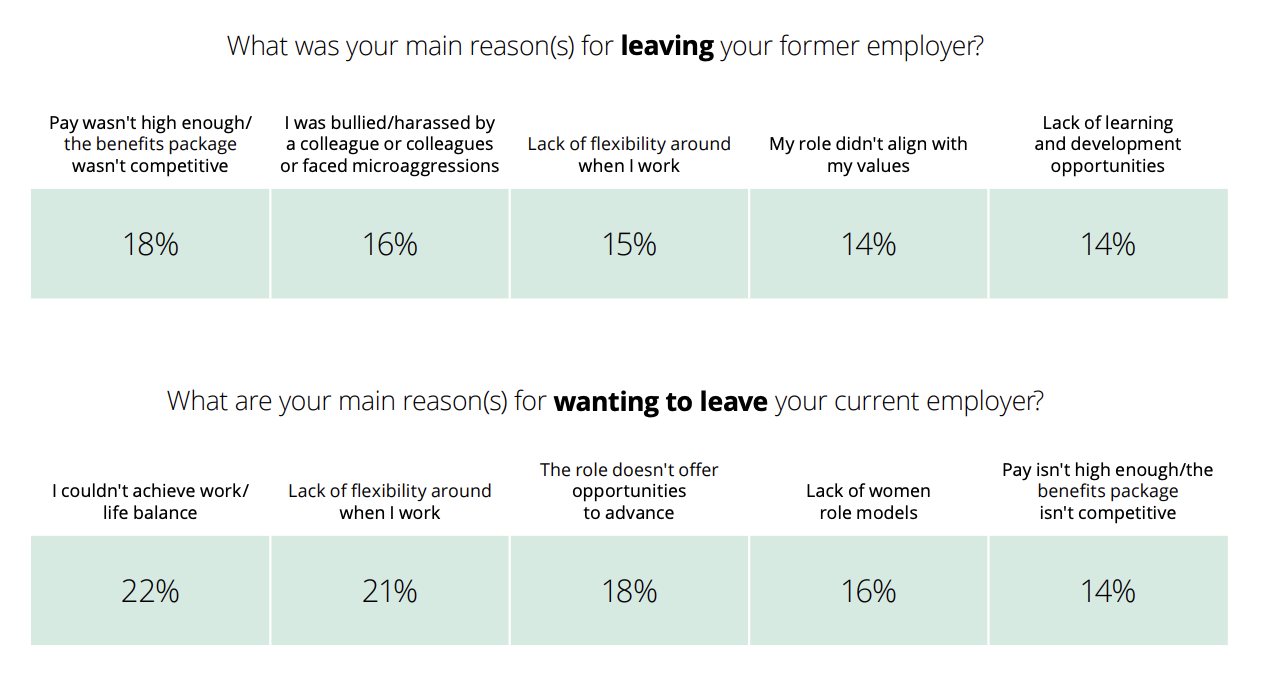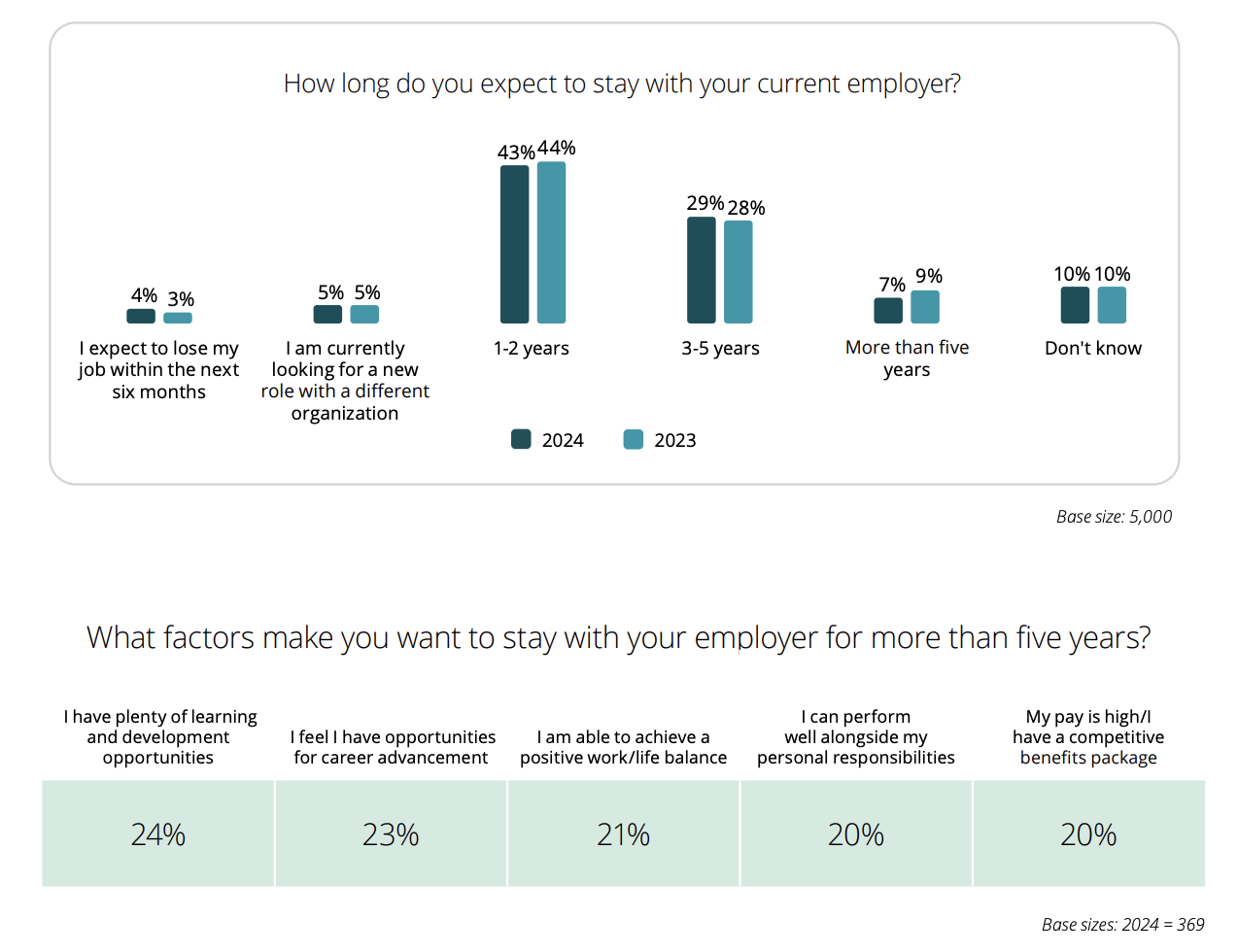'It is widely understood that more diverse organisations perform better, yet most organisations are not making visible progress on their commitments to gender equality'

Inadequate pay has emerged as the top reason why women across the world left their employer in the past year, according to a new report from Deloitte.
The report found that 16% of women changed employers in the past year, with the lack of competitive pay and benefits as the most-cited reason why they left.
Other reasons include being bullied or harassed by a colleague at work, which is cited by 16% of women this year, up from 11% last year, according to the report.
An inability to achieve work-life balance is also making women want to leave their current employer this year. The lack of flexibility and opportunities for career advancement also emerged as drivers on why women want to change employers, the report found.

Source: Deloitte
Retaining women at work
Across the world, the report found that most women are only staying with an employer for one to two years. Almost a third are staying for three to five years, while seven per cent are staying with the same employer for over five years, found the survey of 5,000 women in 10 countries
Nearly a quarter of women said having plenty of learning and development opportunities makes them want to stay with their employer for more than five years. This is followed by having opportunities for career advancement and achieving positive work-life balance.

Source: Deloitte
In terms of career advancement, 75% of women said they want to progress into a senior leadership position within the company. A quarter, however, said they don't want to citing reasons such as:
- Not liking the company culture (23%)
- Believing they would get paid less than a man doing the same role (21%)
- Not believing they have the opportunity to progress to a senior leadership role (20%)
- Less opportunity to do meaningful work and make an impact (19%)
- Not planning to stay long enough at the firm to progress into a senior leadership position (19%)
Gender diversity in workplaces
These findings come as the report found that only 26% of women said their organisation's leadership team is gender diverse, with only 11% saying their employer is taking concrete steps in fulfilling gender equality commitments.
"It is widely understood that more diverse organisations perform better, yet most organisations in our study are not making visible progress on their commitments to gender equality," said Elizabeth Faber, Global Chief People & Purpose Officer, Deloitte, in a statement.
"To create inclusive cultures that enable women's success at work, organisations should focus on addressing workplace factors that drive stress, reduce stigma, and create a culture where women feel able to disclose challenges with their mental and physical health, support efforts to balance work responsibilities with commitments outside of work, and enact policies that empower women's career progression."








